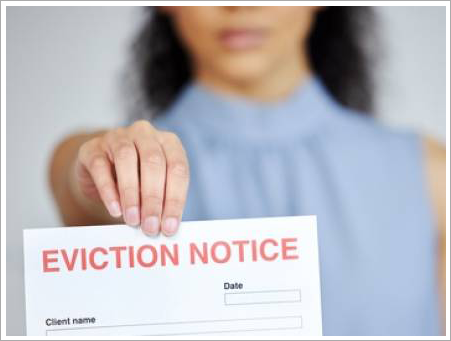Understanding the Commercial Eviction Process in Illinois
No one enters a commercial lease agreement hoping that it will fail. Nevertheless, understanding the laws that apply to evictions is a necessary part of being a commercial property landlord in Illinois. To ensure that you have reasonable grounds for eviction and follow the law when invoking your right to evict, you should consider seeking the help of an experienced Chicago, IL commercial eviction attorney. Several factors can complicate the process, and tenants have the right to challenge an eviction claim. With legal representation, you can enter your hearing prepared.
Serve the Tenant With an Eviction Notice
Illinois law requires landlords to notify a commercial tenant of eviction before taking any other action. It must be a written notice that explains the reason for the eviction.

tenant failed to pay rent, the notice should clarify the amount due in full and the deadline for payment. The tenant must then have the opportunity to address the problem.
File an Eviction Lawsuit
Continuing the example of rent nonpayment, the landlord can move forward with filing an eviction lawsuit if the tenant does not resolve the unpaid rent. Filing an eviction lawsuit generally entails:
- Submitting the complaint
- Presenting a copy of the complaint to the tenant
- Attending the eviction hearing
Sometimes, the reason for eviction is more complicated than nonpayment of rent. Eviction lawsuits can involve substantial damages and unusual circumstances. Commercial leases are significantly more nuanced and complex than residential leases and can require the collection of a large amount of evidence. To protect your interests as the property owner and ensure you are well-versed in landlord and tenant rights under Illinois law, you should consider seeking legal counsel.
Attending the Hearing
As the landlord, you are responsible for presenting evidence that supports your claim for eviction, and you must ensure that the tenant is served with the documents at least three days before the hearing so they may prepare. The judge will then review the evidence that you both present before ruling. If he rules in your favor, the tenant will typically have two weeks to vacate your property.
Achieving Your Optimal Outcome
Carefully following the legal process for a commercial eviction is crucial. It starts with keeping a detailed record of all transactions and communication with the tenant, including any lease violations and a ledger of rent payments. Accurate and adequate records are strong evidence in an eviction lawsuit.
Having legal representation alleviates some of the burden of the eviction process. Your lawyer will facilitate communication, help resolve problems, and protect your rights during disputes.
Contact a Cook County, IL Commercial Eviction Attorney Today
If you are a commercial landlord dealing with a difficult tenant and need help with the commercial eviction process, the Chicago, IL commercial lease disputes lawyers at Teller, Levit & Silvertrust represent landlords around the United States and internationally, helping them collect debt, mitigate disputes, and fight for their rights. Call 312-922-3030 to schedule a consultation today.
Putting Your
Business First
Business First
To Learn more about our services or schedule an appointment please call 312-922-3030.
To Learn more about our services or schedule an appointment please call 312-922-3030.

